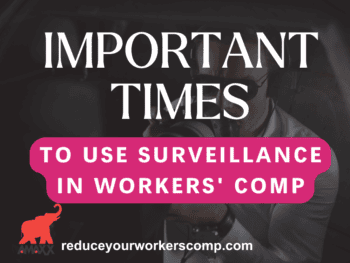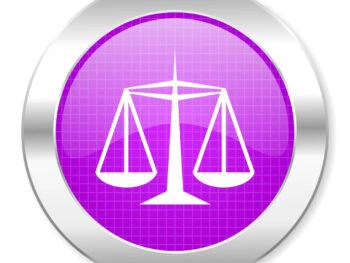Employers are continually searching for ways to reduce workers compensation costs. Triage, where a nurse immediately assesses the employee’s medical condition and in some cases arranges for the medical care, is growing rapidly as one of the most effective ways employers can control workers comp cost. In triage, the nurse is involved at the very beginning of the claim. The triage nurse evaluates what medical care is needed through a phone call with the injured employee at the time of injury, provides a list of approved in-network doctors or medical clinics, then passes the claim to a nurse case manager who follows through with the medical provider, the employee, and the employer to ensure the needs of each are met. Companies using nurse triage consistently have very high “penetration rates” meaning that a very high percentage of employees utilize in-network providers; penetration rates for companies using nurse triage are frequently higher than 90%, many approaching 100%.
Triage in workers compensation is a concept that has been borrowed from hospital emergency rooms where the triage nurse is responsible for immediate assessment of the individual’s injury and organizing the treatment based on the seriousness of the injury. In workers compensation, the triage nurse immediately evaluates the nature and type of the employee’s injury and directs the employee to the proper level of medical care whether it is first-aid, a walk-in clinic, or an urgent care facility. Sometimes the employee is given home-care instructions.
Click Link to Access Free PDF Download
“How Do I Get My Adjusters To Follow My Account Handling Instructions?”
The proper use of triage eliminates lag time and indecision. The injured employee, the employee’s supervisor or a co-worker (in an emergency situation) can report the occurrence of the injury to the triage nurse by phone. Most triage organizations provide a toll-free “hot-line” number for workers compensation claims to be reported and are staffed 24/7. The triage nurses that answer the calls are trained to obtain all necessary information in order to perform a comprehensive evaluation of the medical needs of the injured employee. The triage nurse will use treatment protocols and algorithms to identify the proper course of treatment. The employee is then directed to the nearest appropriate level medical facility. These nurses are specially trained and have had a minimum of 10 years of clinical experience.
The triage nurse does not stop after directing the employee to the medical facility. The triage nurse can then contact the medical facility to inform them the patient will arrive soon. Or, this can be done by the employer’s workers compensation coordinator. The triage nurse provides the medical facility with the information on the employee’s injury along with the employee’s name, address, phone number, date of birth, social security number, employer’s name, address, phone number, and contact information. The triage nurse will also provide the medical provider with billing information and adjuster contact information. Reports of daily activity is sent to the carrier/TPA and the employer, if requested.
Nurse triage makes sure the employee gets to the correct LEVEL of care, but the nurse case manager takes over to “manage” care. Note: When triage is too closely integrated into managing care, it looses focus on preventing unnecessary claims and guiding injuries to the right level of care.
Note: The triage system is more likely to refer more often when the triage provider gains economically from opening a claim. Even “features” that seem convenient like 800 numbers and aps that make it easy for employees to find networks clinics themselves result in employees bypassing triage and going straight to the clinics.
After the employee has had time to be treated, the case managment nurse will contact the medical facility the same day and determine the nature of the medical treatment. Sometimes, this can be done by a senior nurse reviewer or the employer’s medical director. A senior nurse reviewer is a nurse who reviews and follows ALL claims from beginning to end; they monitor all claims within an insureds book of claims. A nurse case manager will inquire to see if there are any prescriptions that need to be filled, if there is any diagnostic testing (MRI, CT scan, EMG, etc.) that needs to be done, and if there is a need for durable medical equipment. The case management nurse will then advise the workers compensation adjuster of the prescriptions, diagnostic testing, and durable medical equipment that is needed. Once the adjuster approves the requested prescriptions, testing or equipment, the case management nurse will assist in arranging for it.
The case management nurse will also ask the medical facility for the return-to-work restrictions placed on the employee by the medical provider. If the employee can return to work with restrictions, the case management nurse obtains all the information on the work restrictions and contacts the employer to see if the employer can accommodate the return-to-work restrictions. IF the employer has a return to work coordinator, the return to work coordinator can make contacts related to transitional duty capabilities.
The recommendations of the medical facility for future medical care and the date the employee will be returning to the medical provider will be obtained by the case management nurse. If the employee needs diagnostic testing prior to the return appointment being scheduled, the case management nurse can follow up with the medical facility providing the diagnostic testing and provide the test results to the medical provider.
The case management nurse (NCM) will facilitate and expedite the communication between the medical provider, the employer, and the workers comp adjuster. NCM also has the responsibility of keeping everyone informed about the medical status of the employee. The NCM will be in regular contact with the employee, the employer, the medical provider(s), and the workers comp adjuster. All information about the medical treatment, medical progress and return-to-work options are shared with all parties.
The length of time the triage nurse will continue to work on the new workers claim is determined by the arrangement between the employer and the triage company but generally the triage nurse will hand the case to the case management nurse once the initial care is evaluated. The case management nurse will normally continue on the case until the employee returns to work full time however there may be a need for a nurse case manager depending on the severity of the injury or the employee’s inability to return to work even in a modified duty capacity.
Integrating the triage nurse into the initial medical treatment allows the employer or insurer to set the tone and level of medical care and ensure the employee gets the appropriate level of care immediately. Then the nurse case manager helps to coordinate employee’s return to work before the employee has the opportunity to adjust to the idea of not working. By providing medical management at the beginning of the workers comp claim, the triage process improves the return-to-work program results, reduces days lost from work, lowers the cost of indemnity payments, and lowers the cost of medical care. Normally, nurse triage can reduce the number of lost time claims by up to 40%.
Author Rebecca Shafer, JD, President of Amaxx Risk Solutions, Inc. is a national expert in the field of workers compensation. She is a writer, speaker, and website publisher. Her expertise is working with employers to reduce workers compensation costs, and her clients include airlines, healthcare, printing/publishing, pharmaceuticals, retail, hospitality, and manufacturing. She is the author of the #1 selling book on cost containment, Manage Your Workers Compensation: Reduce Costs 20-50% www.WCManual.com. Contact: RShafer@ReduceYourWorkersComp.com.
©2011 Amaxx Risk Solutions, Inc. All rights reserved under International Copyright Law. If you would like permission to reprint this material, contact Info@ReduceYourWorkersComp.com.















